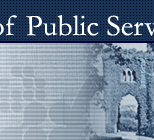|
Wilton Park was something special. Being, I believe,
the last one to sign on for the trip, I am sooo glad that I
ended up going. Overall, this week of conferences at Wilton
Park changed my perception of the US, Europe, and the rest of
the world. The conferences not only altered some of my
opinions regarding our current administration, but also helped
me to see more clearly how some Europeans view America and its
role in the world. This whole experience was so essential in
finding common ground and building friendships across the
Atlantic divide.
While I left Wilton Park with my view of America and Europe
confirmed for the most part, I felt as though I had been
significantly changed for the better in how I viewed Europe
politically. It was very satisfying to discover that, although
we gave a great "divide," our way of life differed only in
detail. Several talked of a common history shared between
Americans and Europeans as a uniting force. It was and is
important to find these links and revitalize them, for several
speakers at the conference and I had sensed a weakening
connection between America and Europe. That is to say that
young Americans are growing up in a country in which they
think that Europe does not really matter, except, perhaps,
when on vacation; Europe does not matter politically; it does
not influence our actions. With more conferences like this
one, hopefully with a few more Americans (go get 'em
Bernard!), young Americans will realize that Europe should not
be ignored in the 21st century.
First, let me comment on a few things that I got out of this
conference. As Zach B. wrote, all the young Europeans seemed
to be complaining about America's "cultural hegemony." They
sighted American movies (Hollywood), American music (MTV), and
American TV (Simpsons, Friends, Ally McBeal). Touring London
for one day, it was apparent-- McDonalds (the UK McDonalds
nicely sponsored our program!), Burger King, Starbucks,
American movie ads on almost every double decker, baseball
caps and T-shirts. Europe's buying into it. Does it really
matter? Some Europeans, especially the British (there were a
lot of British at this conference), noted their impossibly
long history of 2000 years compared with America's measly two
hundred. Their ure has been longer in the making and is,
therefore, superior. Even if a majority of Europeans are
buying into American ure, there are those Europeans who see
America's ural tion to be a threat, at the same time, to their
own precious ure. As Mr. Steve Ebbin told me, however, this is
not America's problem to solve. I would agree. They can be
angry for the decadence of ure, however they should not be
angry at us, but rather angry at themselves for allowing it to
come onto the continent.
Concerning the U.N., Europeans want more cooperation from the
U.S. As the world's only super-power, Europeans acknowledge
that America can "basically do whatever it wants to."
Europeans hope that Americans and Europeans can work together,
however, to solve world problems, rather than America's taking
the "go it alone" approach. Iraq, obviously, is the most
recent example of America executing its own agenda. One
European said, with good reason, that 9/11 happened and
America attacked Iraq, but let me save the Iraq issue for now.
America, on the other hand, sees the U.N. as an organization
that holds it back. The U.N., in America's eyes, cannot get
anything done. Because of this view, the U.S. simply does not
want to deal with the U.N. Again, we can do whatever we want.
However, this indifference to the U.N. could hurt our
relationship with Europe in the long run. Indeed, it already
has hurt it and that is one of the reasons we were at the
conference.
"Does the U.N. need to be reformed?" was one of the questions
we addressed at the conference. Ben Bradshaw, a member of
Blair's party in parliament, certainly thought so.
Unfortunately, my knowledge of U.N. operations is fairly
limited (perhaps because they don't do anything anyway! LOL).
Seriously, though, one speaker noted that the U.N. is
dramatically under funded and has done well with what it has,
having helped out countries in Africa and having sent peace
keeping troops to various countries in the past. Maybe so.
Returning to Iraq, however, the Europeans attacked hard. We
had no support from any other country, save Tony Blair and
Poland. They conveniently swept our support from other Eastern
European countries under the rug. Regardless, we were in no
ways justified. There were no WMD's and no hints of any links
to Al-Quaeda. Yes, we freed the Iraqi's from an oppressive
government, but why did we not go after North Korea or Saudi
Arabia? I see two reasons here. It was obvious to the
Europeans. We, in America, want to drive our large SUV's and
pollute the atmosphere and that just makes us, altogether,
more selfish and more arrogant. On aside, the British kept
referring to American arrogance. I found British
self-congratulations on their long history and even their
manner of speaking on several occasions to be quite arrogant,
but that is a ural issue. Nevertheless, Europe sees the U.S.
as looking out for its own interests without a second thought.
Without doubt, Ame
rica's oil economy is a problem in the long run and the U.S.
should put more effort into alternatives to fossil fuels. Even
more serious, however, was the unsubstantiated reasons for
going to war. As Bob eloquently put it, "Do the ends justify
the means?" The Europeans are angry at our president for lying
and even more angry at the Americans, perhaps, for supporting
him.
The patriotism of America came up as something which blinds
America. Some Europeans suggested that as soon as America
falls or finds itself seriously in the wrong, Americans will
become as cynical of their government and politicians as the
Europeans. Yet, others mark the eternal optimism of Americans
in their country. Some Europeans see this optimism as a
positive quality and others see it as an ignorance and
arrogance. Perhaps America's national conscience gets to the
heart of the issue. In times of war, Americans will support
their president. The events of 9/11 will hopefully bring
Europeans and Americans closer together, but they certainly
brought Americans all over the country closer together. When
national tragedy strikes America, it does not look to other
countries for help, but gather its resources within itself, as
it has done since the Civil War. The Europeans did not
experience a ist attack like 9/11, so they naturally do not
see a retaliation as necessary as the U.S. This experience can
be seen seen as reminiscent of Pearl Harbor, after which a
Japanese official remarked that Japan had awaken a "sleeping
bear." So, now as then, the Americans flex their muscles and
show what happens when you mess with the U.S. Which leads me
to the next reason for attacking Iraq: we could. Tom Friedman
came on the radio today and answered the question of why we
did not attack Saudi Arabia, Iran, or N. Korea first, saying
"we could." America needed to show the world that it would not
tolerate people, of any nationality, flying planes into
buildings like the World Trade Towers. Have the rest of the
world gotten the message, yet?
Leaving patriotic feeling aside, let me discuss the heart of
the issue, as taken from our discussions. What are the reasons
for the attacks on 9/11? Two reasons I see as intelligible:
First, American ural hegemony, but as I said before, radical
Islamists and the rest of the world cannot really blame us for
this. Second, as a Russian and Slovenian claimed, U.S. policy,
but "U.S. policy" is too vague-- what U.S. policy? I picked up
one: America's policy toward Israel.
Our policy, on good source, is that as long as America exists,
it will support Israel. Most of the Arab world and its allies
support Palestine. As a result, most of the Arab world
criticizes America for supporting Israel. And, as I found from
discussion with other young Europeans, much of Europe
criticizes America's support of Israel.
The British, as I understand, set up Israel after the
Holocaust, feeling guilty that they had not sheltered the
Jews. One young British man at the conference noted that
Israel was not set up on geographical boundaries and is,
therefore, "not really a real country." Making clear that
Israel is now America's problem exclusively, he suggested that
if America stopped supporting Israel, it might help the
problem. In other words, if America stopped aid to Israel, the
Palestinian's and their Arab allies might have a better shot
at defeating the Israelis. If Israel was defeated, the Arabs
and Palestinian's would probably slaughter every last one of
them. After all, where would the defeated Israelites go, if
they were defeated?
Furthermore, seconded by a German, he said that Israel is the
protagonist and starts the in every instance. In other words,
it is Israel's fault that the continues. Here is a clear
difference of opinion. On the American media, I have always
heard of Palestinian ists and Israeli retaliation. Europeans
seem to see the course of events in a contrary order.
The Palestinian/ Israeli conflict is clearly a difficult
issue. With the help of Europeans, however, Americans might
have a better chance at solving the problem. It seems somewhat
hypocritical for the British to first start "the problem" by
creating Israel, then not to assist in the peace negotiations,
and finally to criticize America for favoring Israel. However,
at Wilton Park, maybe we can find a solution. The young people
were certainly open-minded or, at least, willing to hear out
others.
Returning to ism, a big question was can ism be solved
militarily? This question, however, relates back to the
previous issue: What are the reasons for ism? If there are
actual issues which cause ists to commit acts of , then
perhaps America could devote itself to resolving these issues.
America believes, however, that these ists have a radical
ideology with which one cannot reason. Lecturers suggested
that general problems plaguing the world, especially in third
world countries, case people to take a radical ideology and,
in turn, commit acts of ism.
Granted, there are other ways to combat ism. However,
Americans do not see these problems as the main reasons for
ism. Americans see a radical religious ideology that
encourages the destruction of the infidel as being the main
cause of ism. Americans, in other words, do not take the cause
of the Islamic ist seriously. They take the threat seriously,
for sure, but not the complaints behind the acts of . "They
hit us and we'll hit them back ten times harder."
Some Europeans, however, are more willing to entertain the
plight of the ist. How can we, as a more developed and
advanced society, help the poor, impoverished fundamentalist
and his country? They point out America's exploitation of
third world countries. Instead of helping these people,
America "throws money at them." Americans think that handing
over more more money will solve the problem. One young
Englishman described a state of the art double pump, installed
by an American in an African country that had no access to
fresh water. After two years, the pump broke down and the
Africans had no water. He used this example to show that
Americans do not really fix the problems of the world, so that
they are fixed for good.
One speaker suggested that instead of spending all its money
on the military, America should spend more money on research
toward solving world problems, like AIDs for instance. America
and Europe can agree that there are many ways to combat ism,
but where should one put the emphasis? Part of the success of
the conference was to raise questions like this one.
Other issues discussed concerned an American Empire, an
East-West Divide, Poland's democracy, trade (bananas?),
American French-bashing, and religion. All in all, we may not
have covered every topic and we may not have discussed a
particular one fully enough, but we did discuss an awful lot
and, most of the time, the discussions were both pertinent and
thought-provoking.
Now, as for my suggestions, I will write to Mr. Knisely
because I do not choose this forum, but he can relay the word
if he wishes. Thank you to everyone who helped to make this
trip a reality for me and the other SPSers, especially Mrs.
Waikart, Mrs. Mohawn, Mr. Steve Ebbin, Mr. Bob Knisely and the
conference: Mr. David Pinder and McDonalds (U.K.). Again, very
glad I went.
|




